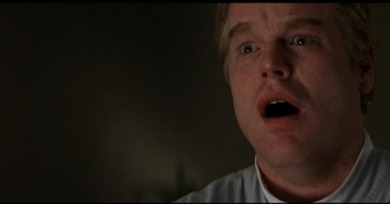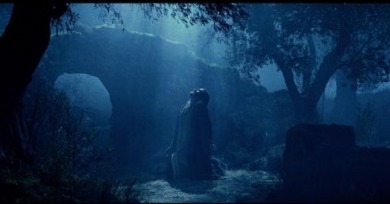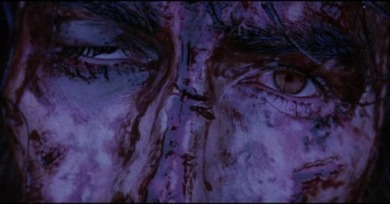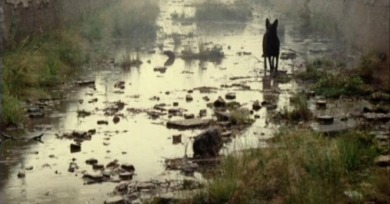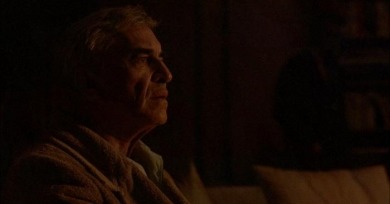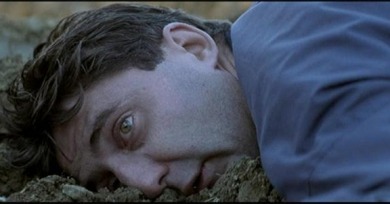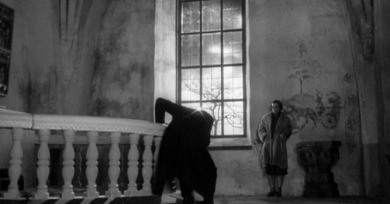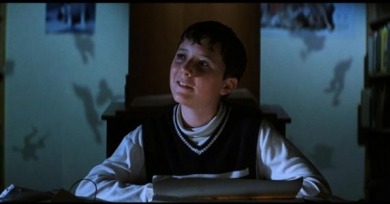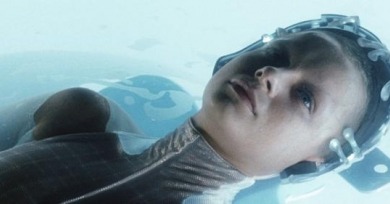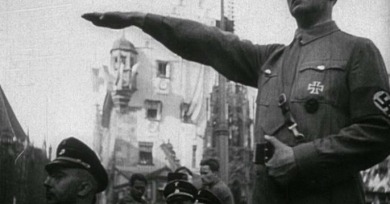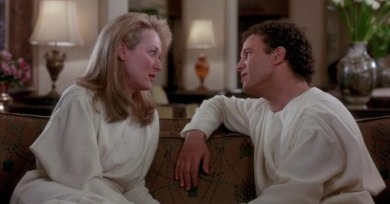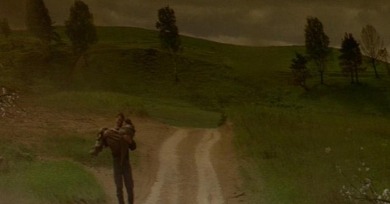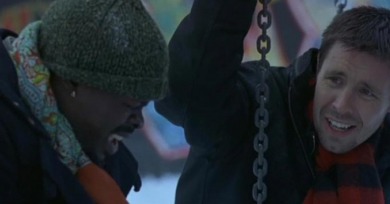The Holy Moment
What is it that the cinephile searches hopefully for on the screen if not some glimpse of perfection, the face of some god?
Forgive me Mel, but The Passion of the Christ just plain stinks. To be expected, I suppose—did anyone really believe that Mad Max was capable of a cinema that operated beyond the kind of plodding, dunderheaded ridiculousness that makes The Passion little more than a prequel to Braveheart?
Alas, in the end, The Passion of the Christ was a movie. A mere movie. Mel Gibson’s brilliantly cynical marketing strategy, buoyed by the ADL’s advance work, lured even us non-believers (sinners) into the theater.
Our proximity to Delphine’s crisis is deepened as the film’s claustrophobic universe rotates tight around her steady sadness, mirroring the way that depression’s folded-in egoism realigns the world in reference to one’s own irrepressible lack.
Rather than comfort, his camera wants to unsettle, to set our limitations, to suggest more. Common are shots of near-microscopic closeness that pan to accumulate, and close-ups that pull away to reveal. To get at the heart of things, he never starts from without, but from within.
God is a simultaneously overbearing and absent voice in Crimes and Misdemeanors. After listening throughout his Jewish upbringing that “the eyes of God are on us always,” Judah becomes a nonbeliever who is nevertheless haunted by the figure of an all-encompassing father.
As the Dardennes anchor The Son to the body of Olivier Gourmet, Dumont sees his world through the eyes and flesh of Schotté’s Pharaon, a slow, shambling, awkward man whose odd demeanor cannot be wholly attributed to the loss of his wife and son a year previously.
The published screenplays of Ingmar Bergman’s “religious trilogy” contain, as a sort of introduction, a single-page announcement of the director’s intentions. “The theme of these three films is a “reduction”—in the metaphysical sense of the word.”
One of pop art’s great emblematic figures of human spirituality stands only three inches high, sucks his thumb like a lollipop, and perpetually carries a blue blanket wherever he goes, clutching it close to him for security from a hostile world.
Magnolia is, if nothing else, a story of people struggling to depart from the kind of rehearsed language that insulates their egos and actually say something candid. That is why much of the film’s dialogue consists of characters talking around one another in clichés.
Spielberg demands that one grapple with this difficult doctrine for the film’s duration, rewarding the viewer with the rapturous thrill of the journey. With this theological concern providing the groundwork, Spielberg invites the viewer to look deeper.
By referring to characters which the viewer does not see, and in some cases does not hear, Kiarostami is evoking a world not just beyond the material limits of the frame, but by implication, beyond the material.
Night and Fog dialectically counterpoints image with sound, past with present, and stasis with movement to set up a thematic tension between our responsibility to remember and the impossibility of doing so, between memory and oblivion or denial.
Steeped in religious iconography, The Color of Pomegranates is a deeply spiritual testament to director Sergei Parajanov’s fascination with Armenian folk art and culture.
There is no more euphoric or enlightening depiction of afterlife logistics and heavenly bureaucracy than Albert Brooks’s 1991 rumination Defending Your Life.
I have taken upon myself a task which I have fairly begun to regret: to write about a film nonpareil in its ability to leave me at a loss for words.
In America, Jim Sheridan's heartfelt portrait of a family in crisis, waits patiently for much of its running time before explicitly acknowledging its portraiture of spirituality in crisis.
Eternal Sunshine of the Spotless Mind could be one of those precious, necessarily rare things: like Breathless or 2001, a paradigmatic film for a generation.
